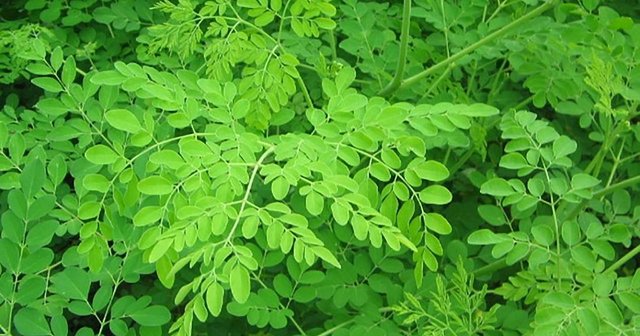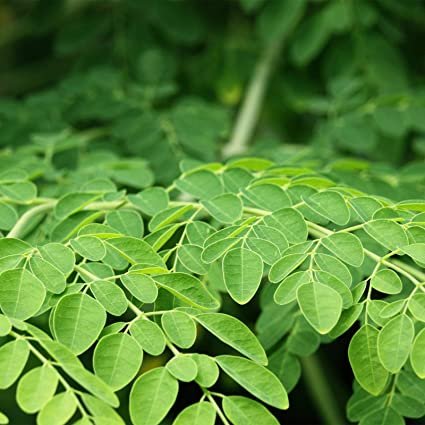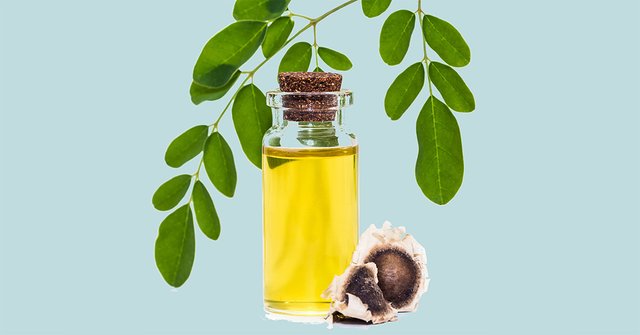Moringa oleifera is a plant that is often called the drumstick tree, the miracle tree, the ben oil tree, or the horseradish tree.
Moringa has been used for centuries due to its medicinal properties and health benefits. It also has antifungal, antiviral, antidepressant, and anti-inflammatory properties.


Moringa is taken by mouth for "tired blood" (anemia), arthritis and other joint pain (rheumatism), asthma, cancer, constipation, diabetes, diarrhea, seizures, stomach pain, stomach and intestinal ulcers, intestinal spasms, headache, heart problems, high blood pressure, kidney stones, symptoms of menopause, thyroid disorders, and infections.
Moringa is also taken by mouth to reduce swelling, as an antioxidant, to prevent spasms, increase sex drive (as an aphrodisiac), prevent pregnancy, boost the immune system, and increase breast milk production. Some people use it as a nutritional supplement or tonic. It is also used as a "water pill" (diuretic).
Moringa is sometimes applied directly to the skin as a germ-killer or drying agent (astringent). It is also applied to the skin for treating pockets of infection (abscesses), athlete's foot, dandruff, gum disease (gingivitis), snakebites, warts, and wounds.

Oil from moringa seeds is used in foods, perfume, and hair care products, and as a machine lubricant.
How does it work?
Moringa contains proteins, vitamins, and minerals. As an antioxidant, it seems to help protect cells from damage. Moringa may also help decrease inflammation and reduce pain.
Uses & Effectiveness
Insufficient Evidence to Rate Effectiveness for...
- TAKEN BY MOUTH:
Asthma. Early research shows that taking 3 grams of moringa twice daily for 3 weeks reduces the severity of asthma symptoms and improves lung function in adults with mild to moderate asthma.
Diabetes. Early research shows that taking moringa tablets along with a type medicine called sulfonylureas does not improve blood sugar control better than taking sulfonylureas alone in people with diabetes.
Increasing breast milk production.
Research regarding the effects of moringa for increasing
breast milk production is conflicting. Some early research shows that moringa increases milk production, while other early research shows no benefit. An analysis of data from five clinical studies shows that moringa moderately increases milk product after one week of use when started on postpartum day 3. But it's not clear if moringa is beneficial when used for longer periods of time.
- Malnutrition.
Early research shows that adding moringa powder to food for 2 months helps improve weight in malnourished children.
- Menopausal symptoms.
Early research shows that adding fresh moringa leaves to food for 3 months improves menopausal symptoms such as hot flashes and sleeping problems in healthy, postmenopausal women.
1.Tired blood" (anemia).
2.Arthritis.
- As a nutritional supplement.
- Birth control.
- Cancer.
- Constipation.
- Diarrhea.
- Epilepsy.
9.Headache. - Heart problems.
- High blood pressure.
- Increasing sex drive.
- Infections.
- Kidney stones.
- Stomach and intestinal ulcers.
- Stomach pain (gastritis).
- Swelling (inflammation).
- Stimulating immunity.
- Thyroid disorders.
- Other conditions.
- APPLIED TO THE SKIN:
22Athlete's foot..
23.Dandruff.
Side Effects
Moringa is LIKELY SAFE when the leaves, fruit, and seeds are eaten as food. Moringa leaf and seeds are POSSIBLY SAFE when taken by mouth as medicine, short term. Products containing moringa leaf have been used with apparent safety for up to 90 days. Products containing moringa seed have been used with apparent safety for up to 3 weeks. Moringa root and root extracts are POSSIBLY UNSAFE when taken by mouth. The roots contain spirochin, a toxic substance.
Special Precautions & Warnings
- Pregnancy:
It's POSSIBLY UNSAFE to use the root, bark, or flowers of moringa if you are pregnant. Chemicals in the root, bark, and flowers might make the uterus contract. In traditional medicine the root and bark were used to cause miscarriages. There is not enough information available about the safety of using other parts of moringa during pregnancy. Stay on the safe side and avoid use.
- Breast-feeding:
Moringa is sometimes used to increase breast milk production. It seems to be safe for the mother when taken for several days. But there isn't enough information to know if it is safe for the nursing infant. Therefore, it is best to avoid moringa if you are breast-feeding.
Children: Moringa leaf is POSSIBLY SAFE when taken by mouth, short-term. Moringa leaf has been used with apparent safety in children for up to 2 months.
Dosing
The appropriate dose of moringa depends on several factors such as the user's age, health, and several other conditions. At this time there is not enough scientific information to determine an appropriate range of doses for moringa. Keep in mind that natural products are not always necessarily safe and dosages can be important. Be sure to follow relevant directions on product labels and consult your pharmacist or physician or other healthcare professional before using.